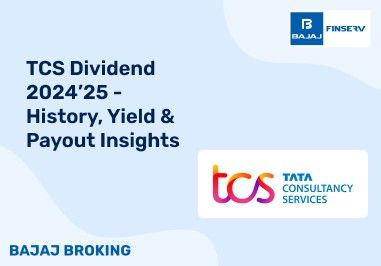BAJAJ BROKING
Ather Energy IPO is Open!
Open a Free Demat Account
Trade Now, Pay Later with up to 4x
Track Market Movers Instantly
NSE and BSE Revise Transaction Charges from October 2024
Synopsis:
SEBI’s July circular leads NSE and BSE to adopt uniform transaction charges from October 1, 2024. The impact varies across market players, with significant effects on discount brokers.
NSE and BSE news today
India's major stock exchanges, the National Stock Exchange (NSE) and Bombay Stock Exchange (BSE) are set to revise their transaction charges effective October 1, 2024. This change follows a directive from the Securities and Exchange Board of India (SEBI) issued on July 1, 2024, which mandates a uniform fee structure for all Market Infrastructure Institutions (MIIs).
Key changes to the fee structure
NSE Revisions:
Cash Market: Transaction fees are standardised at ₹2.97 per lakh of traded value, simplifying the previous tiered rates of ₹2.97 to ₹3.22.
Equity Futures: A uniform charge of ₹1.73 per lakh is applied, marking a reduction from the earlier variable rates up to ₹1.88.
Equity Options: Fees are set at ₹35.03 per lakh of premium value, streamlining the previous range of ₹29.50 to ₹49.50.
BSE Revisions:
Sensex and Bankex Options: Charges are now fixed at ₹3,250 per crore of premium turnover value, a change from the previous range of ₹500 to ₹4,950.
Equity Futures and Sensex 50 and Stock Options: These remain unchanged, with Equity Futures at NIL and Stock Options at ₹500 per crore of premium turnover value.
Expected impact on market players
Negative Impact on Discount Brokers: The new, flat-rate fee structure is anticipated to adversely affect discount brokers such as Angel One, Zerodha, and 5Paisa. Under the old system, brokers could exploit high trading volumes to offer lower rates to the exchanges while charging clients higher fees, benefiting from the difference. The uniform charges eliminate this margin play, potentially reducing broker profits.
Neutral to Positive for Exchanges: For the NSE and BSE, this transition to uniform charges is likely to have a neutral to positive impact. The revision aligns more closely with average realisations, which helps maintain their revenue levels despite the changes.
Market adaptation and future outlook
As the market adjusts to this significant shift, the broader implications on trading volumes and individual investor costs will become clearer. The uniform fee structure aims to create a more transparent and equitable trading environment, potentially attracting more participants to the market.
While discount brokers may need to reassess their pricing strategies, the overall market stability and the position of the exchanges are expected to hold strong. The forthcoming months will be crucial for assessing the full impact of these regulatory changes on India's financial markets.
Disclaimer: Investments in the securities market are subject to market risk, read all related documents carefully before investing.
This content is for educational purposes only. Securities quoted are exemplary and not recommendatory.
For All Disclaimers Click Here: https://bit.ly/3Tcsfuc
Read More Blogs
Disclaimer :
The information on this website is provided on "AS IS" basis. Bajaj Broking (BFSL) does not warrant the accuracy of the information given herein, either expressly or impliedly, for any particular purpose and expressly disclaims any warranties of merchantability or suitability for any particular purpose. While BFSL strives to ensure accuracy, it does not guarantee the completeness, reliability, or timeliness of the information. Users are advised to independently verify details and stay updated with any changes.
The information provided on this website is for general informational purposes only and is subject to change without prior notice. BFSL shall not be responsible for any consequences arising from reliance on the information provided herein and shall not be held responsible for all or any actions that may subsequently result in any loss, damage and or liability. Interest rates, fees, and charges etc., are revised from time to time, for the latest details please refer to our Pricing page.
Neither the information, nor any opinion contained in this website constitutes a solicitation or offer by BFSL or its affiliates to buy or sell any securities, futures, options or other financial instruments or provide any investment advice or service.
BFSL is acting as distributor for non-broking products/ services such as IPO, Mutual Fund, Insurance, PMS, and NPS. These are not Exchange Traded Products. For more details on risk factors, terms and conditions please read the sales brochure carefully before investing.
Investments in the securities market are subject to market risk, read all related documents carefully before investing. This content is for educational purposes only. Securities quoted are exemplary and not recommendatory.
For more disclaimer, check here : https://www.bajajbroking.in/disclaimer
Our Secure Trading Platforms
Level up your stock market experience: Download the Bajaj Broking App for effortless investing and trading













